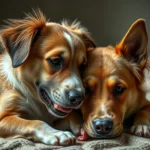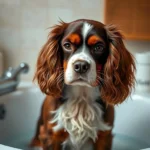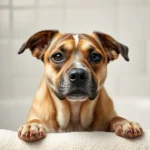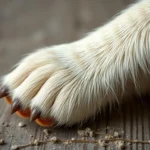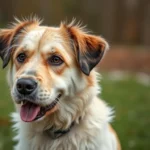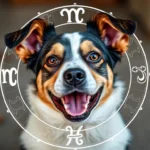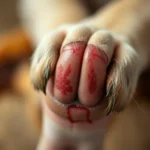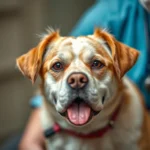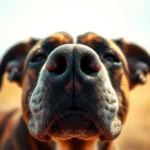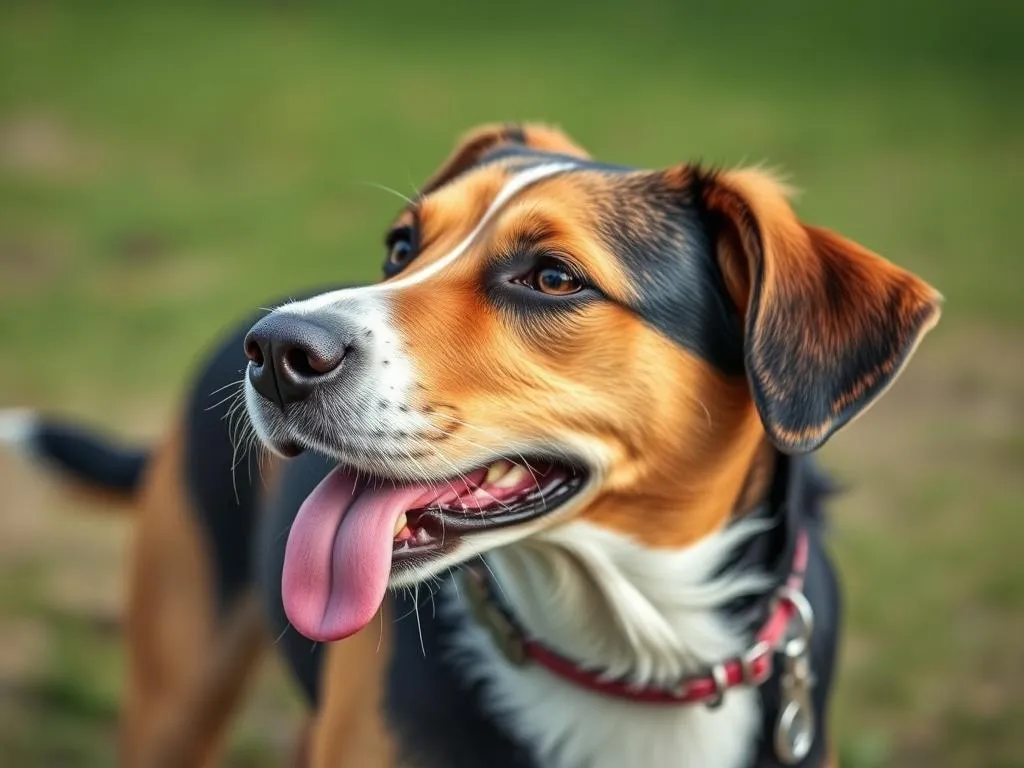
Introduction
Maintaining good health in dogs is essential for their overall well-being and longevity. Just like humans, dogs can face various health issues throughout their lives, ranging from minor ailments to more severe conditions. As responsible pet owners, it’s crucial to be aware of these issues and understand the signs and symptoms that may indicate a problem.
One common behavior that many dog owners notice, especially at social settings like the dog park, is drooling. This article will focus on understanding drooling in dogs, particularly why do dogs drool at the dog park. By exploring this topic, we can better understand the causes behind this behavior and when it might be a sign of an underlying health concern.
Understanding Dog Drooling
What is Drooling?
Drooling, or hypersalivation, refers to the excessive production of saliva in dogs. While a small amount of drooling is normal for many breeds, particularly those with loose lips or jowls, it becomes concerning when the drooling is excessive. Understanding the difference between normal and excessive drooling is key to determining if your dog is facing a health issue.
Reasons for Drooling
Drooling can occur due to various reasons, which can be broadly categorized into natural and health-related causes.
Natural Causes
- Anticipation of Food: Dogs often drool when they smell food or when they’re excited about mealtime. This is a natural response as their bodies prepare for eating.
- Excitement and Playfulness: High-energy activities, such as playing with other dogs, can lead to increased drooling due to excitement.
Health-Related Causes
- Dental Issues: Problems like gum disease or tooth decay can cause excessive drooling. Dogs may drool more if they are experiencing pain while chewing.
- Nausea or Gastrointestinal Problems: If a dog is feeling nauseous or has an upset stomach, it may produce more saliva.
- Allergies or Environmental Irritants: Allergic reactions to certain foods, plants, or chemicals can lead to increased drooling as the body tries to rid itself of the irritants.
- Poisoning or Ingestion of Toxic Substances: Ingesting toxic materials can cause excessive drooling as a symptom of distress.
Why Do Dogs Drool at the Dog Park?
Social Interaction and Excitement
Dog parks are bustling environments filled with other dogs, people, and various intriguing scents. The excitement of meeting new friends or engaging in play can lead to increased drooling. This behavior is often a reflection of a dog’s emotional state; when they are thrilled, their bodies may react by producing more saliva.
Environmental Factors
The environment at a dog park also plays a significant role. Dogs are naturally curious and will explore various scents that could stimulate their salivary glands. Additionally, if the weather is warm, dehydration could contribute to drooling as dogs may pant more and produce saliva to cool themselves down.
Potential Health Concerns
While drooling is often harmless, it’s essential to monitor the behavior. In some cases, excessive drooling can indicate stress or anxiety, especially in dogs that are not used to social situations. Observing your dog closely can help determine if their drooling is simply a reaction to excitement or if it might stem from a deeper concern.
Assessing Your Dog’s Drooling
When is Drooling Normal?
Drooling can be normal during certain contexts, such as playtime or mealtime. If your dog drools when anticipating a treat or during an exciting game, this is generally not a cause for concern. Signs of normal excitement-related drooling may include wagging tails, playful behavior, and an overall happy demeanor.
When to Be Concerned
Excessive drooling becomes a concern when it is accompanied by other symptoms such as:
– Vomiting: Frequent vomiting along with drooling could indicate a gastrointestinal issue.
– Lethargy: If your dog seems unusually tired or disinterested in activities they typically enjoy, it could signal a health problem.
– Change in Appetite: A sudden decrease in appetite, especially if accompanied by drooling, may warrant veterinary attention.
How to Monitor Your Dog’s Health
Keeping a log of drooling episodes can help you identify patterns or triggers. Note when the drooling occurs, the context, and any other accompanying symptoms. Regular veterinary check-ups are crucial for maintaining your dog’s health and addressing any concerns early.
Tips for Managing Drooling at the Dog Park
Preparing for the Dog Park
- Hydration Tips: Ensure your dog is well-hydrated before heading to the park. Carry water and a portable bowl to keep them refreshed during playtime.
- Using Cooling Mats or Shaded Areas: If it’s a hot day, provide shaded areas or cooling mats where your dog can rest and cool down to prevent excessive drooling due to heat.
Behavior Management
Training techniques can help reduce excitement-induced drooling. Here are a few suggestions:
– Teach Calmness: Train your dog to respond to commands like “sit” or “stay” to encourage calm behavior in exciting situations.
– Gradual Socialization: If your dog is anxious in social situations, gradually expose them to other dogs and environments to build their confidence.
Health Maintenance
- Regular Dental Care Routines: Maintain a proper dental hygiene routine to prevent dental issues that may lead to drooling. Regular brushing and dental chews can help.
- Balanced Diet: Ensure your dog is on a balanced diet that supports their overall health, which can mitigate various health issues contributing to drooling.
When to Consult a Veterinarian
Recognizing Warning Signs
If you observe any of the following symptoms, it’s crucial to consult a veterinarian:
– Persistent Excessive Drooling: If drooling continues beyond the usual excitement or food anticipation, it may indicate a health issue.
– Accompanying Symptoms: Watch for vomiting, lethargy, or a sudden behavioral change, as these can signal more serious problems.
What to Expect During a Vet Visit
During a veterinary visit, your vet may conduct a physical examination and ask about your dog’s behavior, diet, and drooling patterns. Common tests may include:
– Blood Tests: To check for underlying health issues.
– Dental Examinations: To assess oral health and identify any dental problems.
Discuss treatment options with your veterinarian, which may range from dietary adjustments to more extensive medical interventions, depending on the diagnosis.
General Tips for Dog Health Care
Regular Check-Ups
Routine vet visits are essential for keeping your dog healthy. Regular check-ups allow for early detection of potential health issues. Ensure vaccinations and preventive care are up to date to protect against common diseases.
Nutrition and Diet
A balanced diet is critical for your dog’s overall health. Consult your veterinarian about recommended foods and supplements that cater to your dog’s specific needs, especially if they have health concerns that could contribute to drooling.
Exercise and Mental Stimulation
Regular physical activity is vital for your dog’s health. Engage in daily walks, play sessions, and activities that stimulate their mind. Mental exercises, such as puzzle toys or training sessions, can help alleviate boredom and reduce anxiety, which may, in turn, lessen excessive drooling.
Conclusion
Understanding why do dogs drool at the dog park is key to providing them with the best care possible. While drooling can be a normal response to excitement and social interaction, it’s essential to monitor your dog’s behavior for any signs of excessive drooling that could indicate an underlying health issue.
By being attentive to your pet’s behaviors, maintaining regular veterinary check-ups, and ensuring a balanced diet and exercise, you can promote your dog’s overall health and well-being. A healthy dog is a happy dog, and being informed is the first step in providing the best care for your furry friend.
